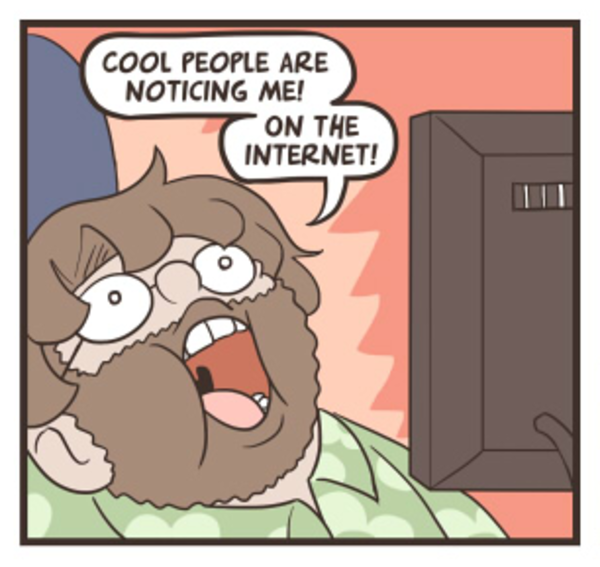
Most of us are overly concerned about what people notice about us and what they think of us. For instance, we may spend an inordinate amount of time choosing what we’ll wear, convinced that most people will notice. We’re worried that we didn’t talk enough or talked too much at a business luncheon.
To some degree, this is to be expected. Because each of us is the center of our own universe, we focus on ourselves and think other people do too. Because we are so focused on our own behavior, it’s hard for us to assess how much or how little our behavior is noticed by others. Tom Gilovich, a psychologist at Cornell University, has studied this issue for years, and his research helps us think clearly about this.
In a 2000 study, Gilovich conducted an experiment in which he asked students to enter a classroom, filled with their peers, while wearing a Barry Manilow T-shirt. At the time, this was not a cool thing to do; the students were embarrassed to be seen wearing the T-shirt. After the encounter, the students estimated that 50% of their peers noticed the Manilow shirt and probably talked about it to others. But when questioned, less than 20% of their peers had noticed.
Gilovich demonstrated the same exaggerated misperceptions in other studies, such as group discussions about social issues. In one study, Gilovich reported that students also badly overestimated how well their own gaffes and clever arguments were noticed by others in discussion groups.
The bottom line is: We’re not as interesting as we think and other people don’t notice us nearly as much as we think they do.
This fact will either disappoint you or give you peace.
If you delight in being the center of attention, if you have narcissistic tendencies, if your sense of value and self-worth come from the attention and admiration of others…you’ll be disappointed to learn that most people don’t even notice you or care what you are doing.
But this insight should actually give us peace. We don’t need to live our lives feeling like we’re constantly walking down a model’s catwalk. We can cease worrying about what people think of us because they seldom do.
Years ago I had a mustache for about 10 years. The day I shaved it off I anticipated a lot of comments. My wife and children didn’t even notice. I should have learned this lesson that day.

Thanks for the great and necessary reminder!
And what a great opportunity for those of us in Jesus to also be reminded that the One whose opinion of us matters most always notices us: “The eyes of the Lord are on the righteous” (Ps. 34:15).
If he notices me – and he does, 24/7! – then whose attention could we possibly crave that matters more?
Aaron, thanks for taking the time to respond. I like your insights. If God be for us, who can be against us. Don
This is funny and liberating!
What do studies say about those of us who notice all those kinds of things like the tshirt or new glasses, or new teeth…I’m curious.
Nancy, you make an interesting observation about those who are good at observing 🙂
I don’t know the answer, but I think the discipline of observation is beneficial.
Take care, Don.
Don, thank you for that information about that fact that most people don’t notice us. I will share this with my daughter. She thinks the opposite.
Don I wanted to tell you that I joined the Grace Avenue United Methodist Church and their choir. I love to sing and our practices are on Wednesday night so I won’t be able to attend you Bible class. I really enjoyed your class
Bonnie, it’s good to hear from you. I’m glad you’ve found a church to be involved in. Take care, Don
How right you are! Two comments: (1) I am one of those who doesn’t notice…sometime things I should and later wish I had. We can encourage and uplift people by noticing the right things… but that’s thought food for another blog, Don.
(2) I submit that we often tend to notice more things we perceive as negative than we do positive (not always, but it’s easy), whether that be clothes, talking, behavior, preaching, singing, driving, job assignment, etc.
Neil, thanks for taking the time to respond. I like both of your thoughts. I need to be more observant and need to observe positive things, not just negative issues. Thanks for the advice. Don